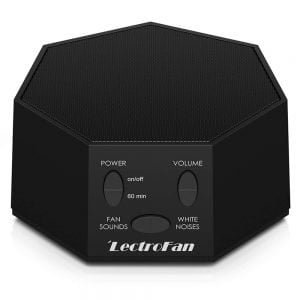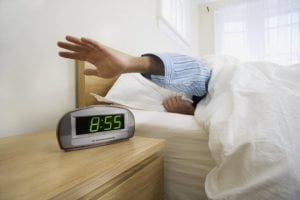The Truth about Sleep Debt: Is It Possible to Catch up on Lost Sleep?
Minimize Cravings, Pay off Your Body’s Sleep Debt Mortgage and Fatigue With These Tips.
Settling Short-Term Sleep Debts is Easy
As mentioned above, missing only a few couple of hours of sleep is okay. More specifically, you can miss up to 10 hours of sleep for a week and still be able to catch up your lost snooze time without serious consequences. How, you might ask? Just sleep an extra three or four hours during the weekends and then add one or two more hours per night the week after. Schedules are forever unpredictable though, so the best solution is to avoid missing sleep in the first place.
Settling Long-Term Sleep Debts is a Challenge
A bigger sleep debt, however, will require more effort to remedy, and it can take a few weeks (if not longer) to settle. For lighter cases, having an extended R&R vacation can do the trick. Sleep for more than seven or eight hours during your time off until you’re fully refreshed and recovered. The only thing you need to worry about is keeping your alarm clock off for the time being. Graver cases though require more attention since their sleep debt might be derived from sleeping disorders or from an unhealthy lifestyle. In these situations, medical attention is necessary.
Settling Sleep Debts Take Time
As you might have noticed, the hours of sleep you’ve missed aren’t always equal to the number of hours you need to recuperate. The higher your sleep credit, the more interest you accumulate. And the sad truth is, you can’t pay for it all in one go since oversleeping is bad for you as well. You have to divide your debts over the course of a few days or weeks before you can be fully repaid. So much for your planned 24-hour sleep marathon!
The healthiest choice isn’t always an option. In Best Worst Choice, experts explain what you can do to make the most of those less-than-ideal situations.

The Bottom Line Is
Your body is mortgaged to the hilt, how do you SETTLE your sleep debt? Getting fewer than the recommended seven hours per night can leave you fatigued and moody. I know this from experience and perhaps you do as well?
Experts Tell Us This Say = Insight:
HHP Paul Chek says it this way.’your body repairs its muscle tissue between 10:00 Pm and 2:00 Am and Emotional repair or Psychogenic repair occurs from 2 am to 6 am. Every time you eat into those time windows of repair and go to bed late, you’re effectively changing your body’s natural rhythm’s. Eventually your body will be paying the bills in can no longer afford and dis-ease in many forms is on its way.
Return to your regular sleep-wake schedule as soon as possible. “Ideally, you’d minimize variance to one hour on either end,” says Samantha Rota, A Tier X coach and the regional lead for sleep coaching curriculum at the Equinox health club Highland Park here where we live in Dallas.
One way to help you do that: exercise but it needs to be exercises that help you work-in and not work out. Since your body won’t be able to function at top performance when you’re under-slept, choose lower-intensity work like walking, yoga, Qi Gong, Tai Chi or perhaps a re-bounder (aka mini trampoline)
If you need to take a midday nap, make it 20 or 90 minutes long. “Up until twenty minutes, you’re still in the light sleep phase, so it’s easier to wake up without feeling groggy,” Rota says. “At ninety minutes, you’ve completed a full cycle, which has the same benefit.”
As a Precision Nutrition Coach I always recommend good sleep that helps our bodies and minds recover, keeping us lean, happy, mentally focused, and healthy. But chronically bad sleep slathers on body fat, screws up our hormones, ages us faster, increases chronic illnesses, and drains our IQ and mojo.
The Leading neuroscience professor in the world is being Interviewed on Peter Attia Podcast. I learned so much in that 60 minutes that I have changed everything I do when it comes to sleep. here is what you will learn. n part 1 of this 3 part series, Matthew Walker, professor of neuroscience at UC Berkeley and expert on sleep, describes the different stages, and cycles, of sleep, including what he calls the 4 pillars of sleep, and how they contribute to memory consolidation and numerous important pathways to mental health.
We also get into the dangers of chronic sleep deprivation, such as the development of dementia, and the more acute dangers of sleep deprivation like fatal car crashes which are most often caused by drowsy driving. We also discuss the different and important roles of REM vs. non-REM sleep, and the impact that bad sleep habits can have specifically on those sleep stages.
They discuss:
- Matthew’s background and interest in sleep [5:00];
- Sleep and Alzheimer’s disease, and the 4 pillars of sleep [11:15];
- Stages of sleep, sleep cycles, and brainwaves [40:15];
- Memory and sleep, and the risk of insufficient REM sleep [54:45];
- Evolutionary reasons to sleep [1:01:00];
- The early riser vs. the night owl, and tips for overcoming jet lag [1:09:15];
- Is there one type or stage of sleep that is most important? [1:16:30];
- The dangers of drowsy driving [1:25:45];
- The timeliness of Matthew’s book, PURCHASE ON AMAZON HERE TODAY and how the conversation of sleep has changed over the past several years [1:34:15];
Part Two Sleep and cardiovascular disease [6:00];
Fuel partitioning and dieting while sleep deprived [16:45];
Sleep and the reproductive function: testosterone, sperm count, FSH, menstrual cycles, and fertility [19:45];
The biological necessity of sleep, the lack of a “safety net”, sleep debt, and ways to course correct sleep problems [23:45];
Fighting cancer and improving immune function with sleep [34:30];
Part 3 Matthew Walker, Ph.D., on sleep – Part III of III: The penetrating effects of poor sleep from metabolism to performance to genetics, and the impact of caffeine, alcohol, THC, and CBD on sleep
“Lack of sleep is like a broken water pipe in your home. It will leak down into every nook and cranny of your physiology.” —Matthew Walker
What Do We Do?
#1 Eat and Drink Appropriately.
Having a large meal immediately before bed can disrupt your ability to fall and stay asleep. Instead, eat a regular-sized (or even smallish) meal a few hours before bedtime. A nice blend of protein, carbs and fats will help to keep you satiated, and might even improve your ability to fall asleep as your brain converts carbs to serotonin.
In addition, try to limit your fluids 2-3 hours before bedtime. Drinking too much liquid shortly before bed can result in frequent waking for bathroom breaks.
The Bottom Line = Create a Sleep Routine!
You need to TELL your body at night that it needs to prepare to go to sleep. So, no computer time, high drama television (it released to much cortisol) high carb meals, cell phones unless you have the app to block the blue light for at least 2 hours before 10:30. Follow the one-hour variance rule as much as possible.
Do a brain dump.

We’ve all done it: Stared at the ceiling, long after lights-out, obsessing about all the things we’re supposed to do tomorrow, tossing and turning and getting more and more stressed by the minute.
Try this instead: In the evening, take a few minutes to write out a list of whatever’s bugging you: Emails you need to send or reply to, calls you have to make, project ideas, creative thoughts, that thing you should have said to so-and-so…
Whatever is in Your Brain, get it out and on to paper.
Turn off electronics.
Digital devices stimulate our brain with their light, noise, and mental demands. Unplug from all screens — TVs, computers, phones, tablets — at least 2 hours before bed. (If you must read your tablet, switch the screen to the black or dimmer background. And if you’re going to be on your computer, download a program like f.lux, which decreases your screen’s color temperature at night.)
Our brain produces melatonin as light levels decrease. Melatonin ensures deep sleep, and may also help regulate our metabolism. If we have too much light at night, we don’t get proper melatonin production.
Stretch / read / de-stress before bed.
What de-stresses you? Do that. This could include:
- Gentle movement — such as stretching or yoga, or even a slow stroll around the block. Even 5-15 minutes
- can release tension and activate calm-down chemicals.
- Reading before bed — but make sure it’s not too engaging — otherwise you’ll be tempted to stay up with that thrilling detective novel until the wee hours.
- Meditation, deep breathing, or other simple relaxation exercises
Keep the Room as Dark as Possible.
Melatonin is a hormone produced by your brain that signals to your body it is time for sleep. Making your room as dark as possible will maximize your melatonin production.
Meanwhile, light — particularly blue light, which most electronics produce — inhibits melatonin production and makes it harder to fall and stay asleep. (Sunsets produce red light.)
So how can you limit light exposure?
- Dim lights at night. Install low-wattage bulbs in your bedroom, and keep things as dim as possible in the hour before your planned bedtime.
- Cover your windows well. (Maybe time to upgrade from the cruddy IKEA Venetian blinds you’ve had since undergrad?)
- Use a motion-sensitive or dim night light if you need something to illuminate your midnight path to the bathroom.
- Put your iPhone in another room or flip it face down.
- Cover or dim the alarm clock, or look for one that illuminates only when touched.
Again, if you have to use a computer late at night, download the software f.lux, which changes the brightness and tone of your screen in time with sunset and sunrise, reducing evening blue light. - Create a relaxing sleep area that is quiet and free of clutter.
- Your bedroom should be relatively organized and peaceful.
The sight of clothes strewn all over the floor or furniture, boxes or books toppling over, and tangled cords can make you feel stressed and interfere with your ability to relax.
A messy room can also be dangerous if you have to get up at night to use the bathroom.
Set Your room to an Appropriate Temperature.
Most people sleep better when it’s cool (around 67 F); others sleep better at a neutral temperature. I use a Chilipad you can purchase on on Amazon Here….NOTHING has HELPED ME MORE, and it has kept our A.C. bill down in the summer and heating bill down in the winter. The Chilipad uses the coolest system to heat and cool your mattress with out small tubes of… go check it out, then come back here. I will still be here!
Find what works best for you and do your best to regulate your bedroom to that temperature each night.
Use white noise if needed. You can go to our FAV’s and see all the things we love and recommend.
If you live in an urban environment and you tend to pop awake at the slightest sound, then a steady source of white noise could really help.
We use both of these, one for travel and this one is great in our bedroom. And just so you know I have tried them ALL, and these two seem to have lasted the longest and worked the best. If you FORGET To pack yours this one on my mobile phone works stellar! Find it here.
- Room Sleep and Light Therapy Machine https://amzn.to/39AybX6
- Portable Travel Just Sounds https://amzn.to/2uOEmYU
- Mobile Phone App, Best We’ve Found. https://play.google.com/store/apps/details?id=com.dreamstudio.whitenoise&hl=en_US

Using some nature sounds on your iPhone, or even just turning on a fan (or an old radio to static) can be enough to drown out other noises and lull you to sleep.
A HEPA filter can also work well for this purpose, serving double duty by keeping your air cleaner as well.
Mornings! Wake up to light from a window
Expose yourself to more light.
Whether you wake to a dawn-simulating alarm clock or not, continue to expose yourself to light as soon as possible after waking. This will stop melatonin production and increase your wakefulness.
Throughout the day, get as much light as you can. Most folks can sneak outside for 5-10 minutes. Run errands at lunch or eat outside. Do as much as you can to get that sunshine.
The more bright natural light you can get during your normal waking time, the more your body will know to gear down at your normal sleeping time.
(If getting natural light isn’t an option, you could always go with a device like this one here) It is a great light and I use it daily.

Conclusions
- Good sleep is crucial for good health. There are no short cuts, despite what the “sleep hackers” say.
- Make good sleep a priority. Your physical, mental, and emotional wellbeing will thank you.
- Think about good sleep as a 24-hour process. What you do during your waking period will affect your sleeping period, and vice versa.
- Reinforce your natural circadian needs. When it’s supposed to be dark and quiet, make things really dark and quiet. When it’s supposed to be bright, noisy, and stimulating, get moving with some bright light.
- Give your body and mind transition time. Allow at least 30 minutes (and preferably an hour) in the evening to slowly wind down and prepare for sleep.
- Stick to a routine. Bodies love routines and consistency. If your body knows what to expect in your day, it’ll help you wake up and doze off at the right time.
- You can’t control your actual sleep. But you can control your sleep behaviors and environment. Take charge of your actions and surroundings, be consistent, and enjoy the Zs.
This Info Graphic From My Brand Partners At Precision Nutrition is Great, Save it to Your Desk Top And Print It!

